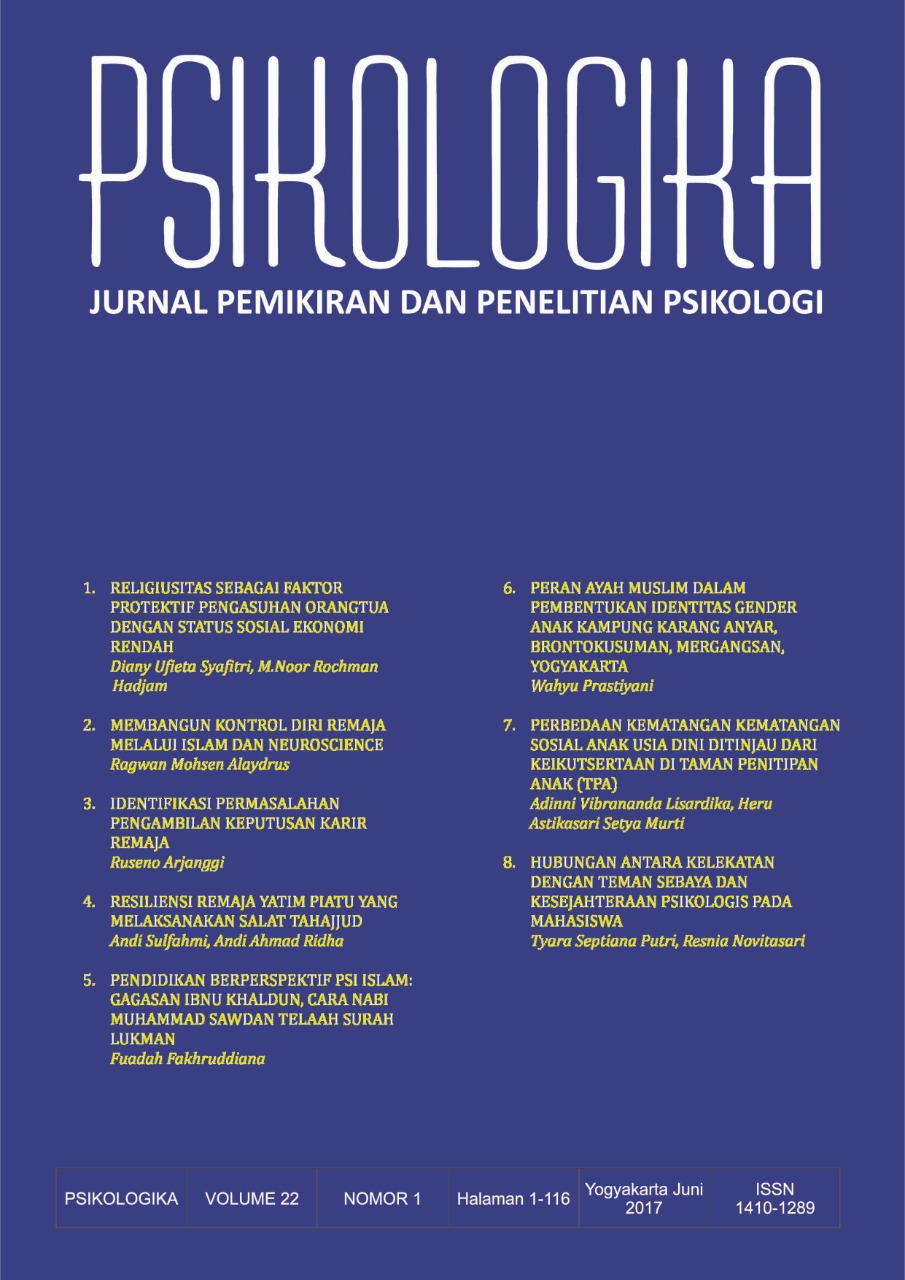Main Article Content
Abstract
Adolescents are often associated with high work in risk taking behavior. Neuroscience experts then proposed hypotheses that tend to be related to adolescent brain development, in the prefrontal cortex and limbic systems. Through fMRI-related scanning is the cognitive ability that plays a role in self-regulation and decisionmaking is still growing until late adolescence. That's how the limbic system is so sensitive to socio-emotional stimuli. Therefore adolescents need to be changed. For these things can reduce the tendency of adolescents to behave deviant. Along with that, Hujjatul Islam Al-Ghazali also mentions self control as a testament to the strength of one's character. Preventive measures have been taken to improve adolescent selfcontrol and prevention in risky behaviors through various
trainings. Nevertheless, the outcomes of the existing training proved not to provide long-term pricing. Furthermore this article discusses the approach that can be done by parents and educators as a combination of Islamic perspectives and neuroscience findings in assisting adolescents develop self-control.
Keywords: adolescent, Islamic parenting, neuroscience, self control, risk taking behavior
trainings. Nevertheless, the outcomes of the existing training proved not to provide long-term pricing. Furthermore this article discusses the approach that can be done by parents and educators as a combination of Islamic perspectives and neuroscience findings in assisting adolescents develop self-control.
Keywords: adolescent, Islamic parenting, neuroscience, self control, risk taking behavior
Article Details
License
Authors who publish with this journal agree to the following terms:
- Authors retain copyright and grant the journal right of first publication with the work simultaneously licensed under a Creative Commons Attribution-ShareAlike 4.0 International License that allows others to share the work with an acknowledgment of the work's authorship and initial publication in this journal.
- Authors are able to enter into separate, additional contractual arrangements for the non-exclusive distribution of the journal's published version of the work (e.g., post it to an institutional repository or publish it in a book), with an acknowledgment of its initial publication in this journal.
- Authors are permitted and encouraged to post their work online (e.g., in institutional repositories or on their website) prior to and during the submission process, as it can lead to productive exchanges, as well as earlier and greater citation of published work (See The Effect of Open Access).




